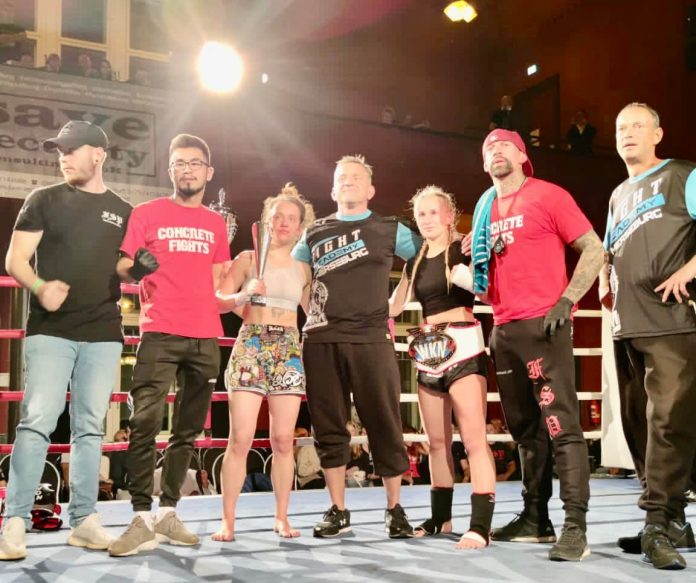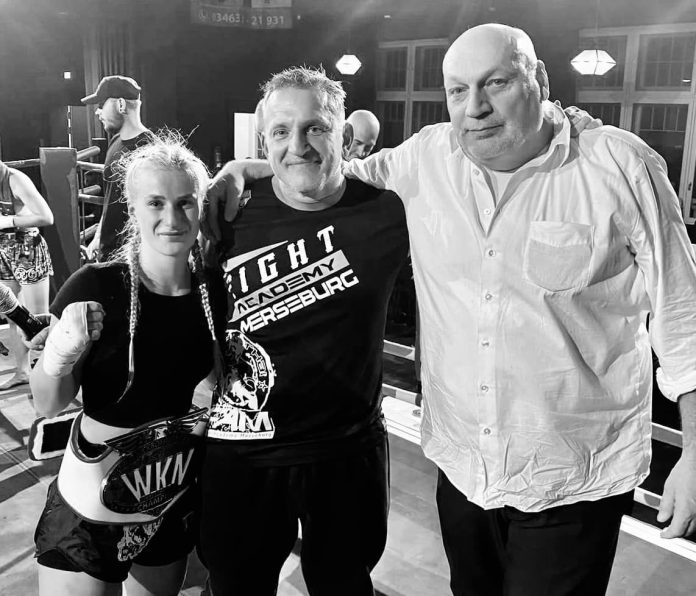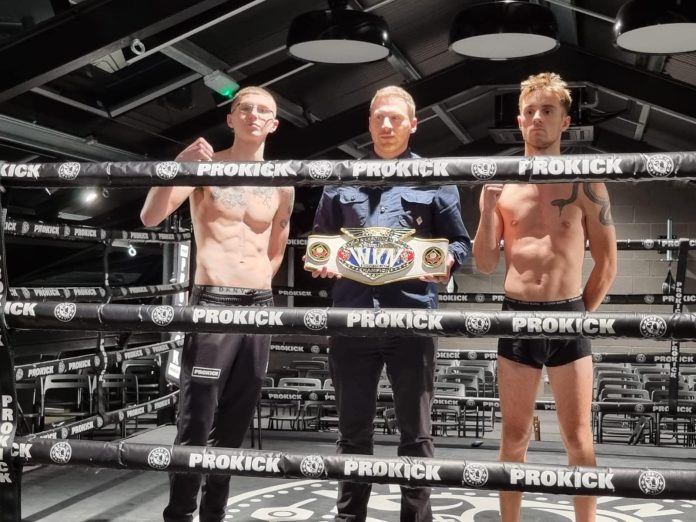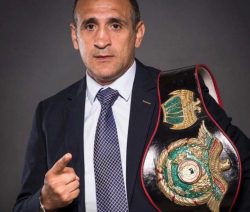World Kickboxing Network (WKN) is the world’s leading governing body for all disciplines of kickboxing. The WKN includes Full Contact, Kickboxing, Oriental Rules and Muay Thai.The origins of Kickboxing can be found in Thailand in the 2000-year-old discipline of Muay Thai. Muay Thai, like many other martial arts, was initially devised for self-defense. It developed into a sport when unarmed combat became ineffective in warfare. Muay Thai is a national sport of Thailand where the boxers receive an equivalent superstar status as premier league footballers in Europe or basketball players in the USA.
Kickboxing developed through a combination of Muay Thai and influence of other martial arts. It was aided in its rise when Bruce Lee exploded onto the big screen.
The first time anything resembling what we now know as Kickboxing began in the United States in the early 1970’s as Full Contact Karate. For some Karate wasn’t enough. Some wanted to taste the buzz of a full contact bout but restrained because of the injury risk and the rigid rules. Full Contact Karate soon evolved. Before too long, this step towards a full-contact sport, with timed rounds, became Full Contact Karate.
The first ever Kickboxing World Championships were hosted at Los Angeles Sports Arena on 14th September 1974. PKA (Professional Karate Association), which was Karate’s own sanctioning body, provided the official nod that was required. The bouts took place on a standard Karate surface. Some of the best North American traditional Karate fighters participated in this historical event. Jeff Smith, Joe Lewis, Bill Wallace and Isuena Duenas became the first in history kickboxing world champions. Their names are legendary.
It wasn’t until the late 70’s that kickboxing moved into a boxing ring. Initially, there were only four (4) weight division.
From 1974 until 1985, although operating mainly through the USA, the PKA was the most recognized sanctioning group worldwide. Don and Judy Quine, along with Joe Corley, helped it on its’ way. They were instrumental in establishing the first links with television. Their contract with the American TV network ESPN helped take the burgeoning sport to a wider audience. The PKA developed the first fighter’s ratings systems and presented their champions with a very real and very high profile. Jean-Yves Theriault, Brad Hefton, Jerry Trimble, Steve Shepard and others became the first stars of the new regulated sport, kickboxing.
The roots of kickboxing in Europe were planted in Germany. An amateur organisation to rival the PKA appeared in 1975. Georges Bruckner created World All Style Karate Organization (WAKO). It was the only international amateur federation in Europe. Over the next decade a myriad of sanctioning bodies came and went, all claiming to represent the best interests of the fighters and the sport. WAKO remained the leading amateur kickboxing federation. A few years later Italian Ennio Falsoni took it over. The Professional Kickboxing Organization (PKO) soon emerged as a professional branch under the guidance of Mike Anderson. Though it was short-lived when Anderson retired in 1991. The International Kickboxing League (IKL) became professional division of WAKO. The IKL lasted several years only.
The World Kickboxing Association (WKA) was created in 1976 by Howard Hanson, a Shorin Ryu Karate black belt and student of Mike Stone. It developed the field of leg kicks, thanks to some strong Asian connections and good promotions in Japan. The WKA also prospered in Europe. Champions like Rob Kaman, Fred Royers, Ivan Sprang and Ronnie Green emerged over a decade ago and remain planted in the memory. When Hanson sold the WKA to Canadian Dale Floyd in 1991 its’ North American activity started to fade. When Paul Ingrahm took over the prestigious federation and established its World headquarters in the UK in January 1994, newly appointed European directors Fred Royers from Holland and Jean-Paul Maillet from France left. At the time, WKA was the second largest professional sanctioning organisation in the World.
When legal problems sent the PKA to the wall in 1985, five major USA based promoters and PKA executives decided to create a new body. On 16th July 1986, the International Sport Kickboxing Association (ISKA) was born. Mike Sawyer, Karyn Turner, Tony Thompson, John Worley and Scott Coker where the first ISKA directors in the USA. Most of the major PKA promoters began sanctioning their events with the ISKA and several joined its administration. Major title bouts featuring the sport’s finest fighters were broadcast during 1986 on ESPN television network. It helped bring credibility and recognition to this new association.
At the time, the intercontinental links where the weak part of WAKO and WKA sanctioning bodies. WAKO was virtually non existent anywhere other than Europe. WKA was almost only active in Asia. A European arm of ISKA was going to prove vital.
In October 1986 Olivier Muller, Jerome Canabate and Mohamed Hosseini were appointed ISKA European directors. American Richard Mayor oversaw the establishment of this European wing as European president between 1986 and 1988.
By 1991, the worldwide control of the ISKA was shared by two co-chairmen – Mike Sawyer and Olivier Muller. It was their work that secured international TV coverage, that began to unite separate organisations springing up worldwide and took responsibility for sanctioning and grading.
Although all sanctioning bodies sanctioned Muay Thai title bouts during all those years, the WMTC remained the most credible organisation in Muay Thai.
From 1996 till 1998 the ISKA was headed by Olivier Muller. In two years he revitalized and added fresh impetuous to a management heavy organisation. Muller turned an organisation, that in the early nineties had began to flag, into one that operated 60% of the worldwide kickboxing business.
But as before, minor squabbles and petty professional jealousies have led to a split. The younger blood that led the European charge has become disillusioned with the incumbent American leaders.
A new fresh body, the World Kickboxing Network (WKN) was established on the 1st of October 1994 as a subsidiary of ISKA. Unfortunately the Americans saw the WKN as a threat. In 1998 the organisations split. The departure of Muller from ISKA was imminent. It is sad that the split should have happened but confirms that a bright new dawn is guaranteed.
A solid team, led by Stephane Cabrera, runs the WKN. All other big names in the world of kickboxing follow. From the beginning the organization sees their fighters such as Jerome Le Banner on Don King under-card. Meanwhile the WKN promotes and boosts smaller and little established fighters and events.
During over two decades WKN devotedly develops kickboxing. It operates internationally in over 100 countries across the World. The leading industry participants and sports fans recognize WKN as the ‘Simply The Best’ kickboxing federation of the 21st century.










 Subscribe to my channel
Subscribe to my channel
